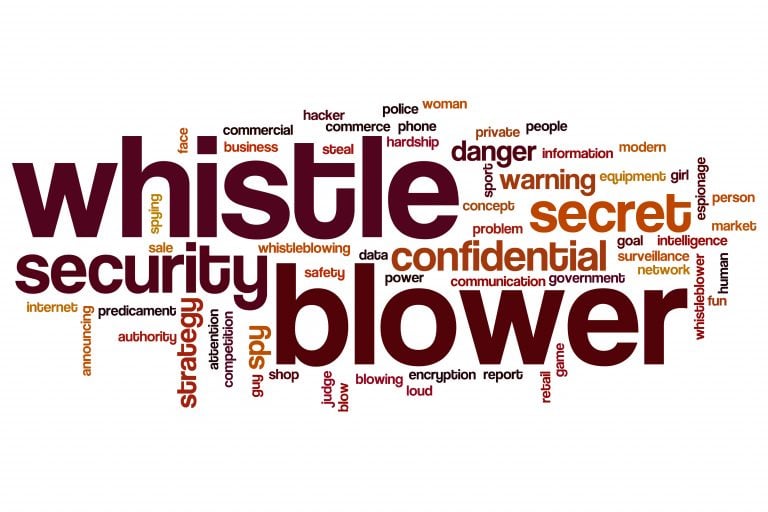SOX Whistleblower Lawyer Quoted About Scope of SOX Whistleblower Protection
A Law360 article titled DOL Take On SOX Getting Fed. Court Deference, Lawyers Say quotes whistleblower lawyer about recent federal court decisions construing the scope of protected whistleblowing under the Sarbanes-Oxley Act.
The article reports that recent federal court decisions are deferring to the DOL Administrative Review Board’s decision in Sylvester v. Parexel Int’l broadly construing Sarbanes-Oxley whistleblowing. The article quotes Zuckerman’s observation that “There is a clear trend emerging in which federal courts are deferring to Sylvester.”
In Sylvester, the ARB held:
- Under the plain language of SOX, “the complainant need only show that he or she ‘reasonably believes’ that the conduct complained of constitutes a violation of the laws listed in Section 1514.”
- An employee need not wait until the illegal conduct occurs to make a protected disclosure, so long as the employee “reasonably believes that the violation is likely to happen.”
- A complaint need not allege shareholder fraud in order to be protected under SOX. The ARB found that SOX was enacted, not solely to address securities fraud, but “corporate fraud generally.” It is sufficient for an employee to form a reasonable belief that a violation of “any rule or regulation of the Securities and Exchange Commission” could lead to fraud, even if the violation itself is not fraudulent. For example, SOX would protect a disclosure about deficient or inadequate internal controls over financial reporting, even though there is no allegation that fraud has actually taken place.
- The reasonable belief standard requires an examination of the reasonableness of a complainant’s beliefs, but not whether the complainant actually communicated the reasonableness of those beliefs to management or the authorities.
- The ARB overruled prior authority that had required a complainant to establish that the protected disclosure “definitively and specifically” related to one or more of the laws listed under Section 806(a). See Platone v. FLYi, Inc., ARB 04-154, 2003-SOX-27 (ARB Sept. 29, 2006) (holding that the complainant did not engage in protected activity because she did not provide her employer with specific information regarding the conduct she believed constituted fraud).
- A SOX complainant has engaged in protected activity if he or she simply has an objectively reasonable belief that a violation of the laws in Section 806 has occurred – the complainant does not need not establish the various elements of criminal fraud. The ARB found that requiring a complainant to allege, prove, or approximate the elements of fraud (that the reported conduct was “material,” intentional, relied upon by shareholders, and caused a loss to shareholders) would be contrary to the purpose of the whistleblower protection provision.
- The Iqbal/Twombly plausibility pleading standard does not apply to SOX claims. Instead, a SOX complainant must simply provide “a full statement of the acts and omissions…which are believed to constitute the violations.”
Post-Sylvester, employers have tried to persuade federal courts to ignore the decision and instead defer to the ARB’s errouneous Platone decision. Fortunately, that effort has been largely unsuccessful. See, e.g., Wiest v. Lynch, 710 F.3d 121 (3d Cir. 2013) (holding that Sylvester is entitled to Chevron deference); Leshinsky v. Telvent GIT, S.A., 942 F. Supp. 2d 432, 443 (S.D.N.Y. 2013); Stewart v. Doral Fin. Corp., CIV. 13-1349 DRD, 2014 WL 661587 (D.P.R. Feb. 21, 2014).
In Lockheed Martin Corp. v. Administrative Review Bd., the Tenth Circuit held that “the Board explicitly disavowed the ‘definitive and specific’ evidentiary standard for Sarbanes–Oxley complainants.” Lockheed Martin Corp. v. Admin. Review Bd., U.S. Dep’t of Labor, 717 F.3d 1121, 1132 n.7 (2013). In August 2014, the Second Circuit held that Sylvester should be granted Skidmore deference, or “respect according to its persuasiveness.” Nielsen v. AECOM Tech. Corp., 2014 WL 3882488 (2d Cir. Aug. 8, 2014). Note though that some jurisdictions continue to apply Platone. See, e.g., Gauthier v. Shaw Group, Inc., 2012 WL 6043012 (W.D.N.C. Dec. 4, 2012) (dismissing SOX complaint because the alleged protected conduct did not relate specifically to shareholder fraud). As federal courts increasingly defer to Sylvester, SOX whistleblowers are more likely to survive summary judgment and establish protected conduct at trial.
SOX Whistleblower Protection Law
Guide for Sarbanes-Oxley Corporate Whistleblowers
Leading SOX whistleblower law firm Zuckerman Law issued a guide to the SOX whistleblower protection law: “Sarbanes-Oxley Whistleblower Protection: Robust Protection for Corporate Whistleblowers.” The guide summarizes SOX whistleblower protections and offers concrete tips for corporate whistleblowers based on lessons learned during years of litigating SOX whistleblower cases.
The goal of the guide is to arm corporate whistleblowers with the knowledge to effectively combat whistleblower retaliation, avoid the pitfalls that can weaken a SOX whistleblower case, and formulate an effective strategy to obtain the maximum recovery.
If you have suffered retaliation for whistleblowing, contact us at 202-262-8959 to schedule a free preliminary consultation.
Are SEC Whistleblowers Protected Against Retaliation?
Click here to learn more about anti-retaliation protections for SEC whistleblowers under the Dodd-Frank Act and Sarbanes-Oxley Act.









